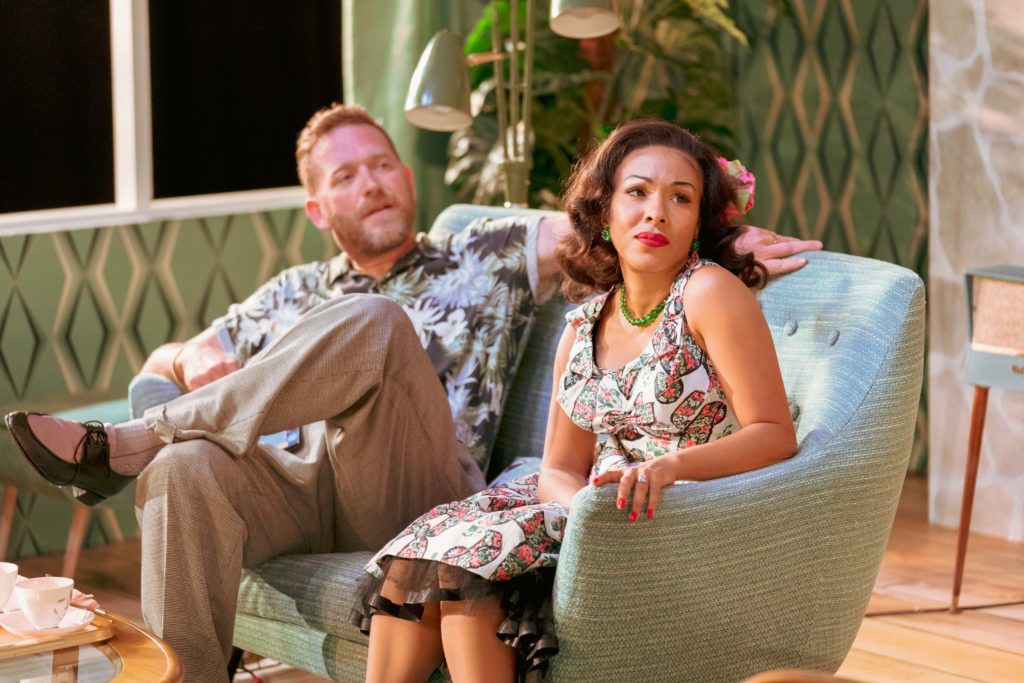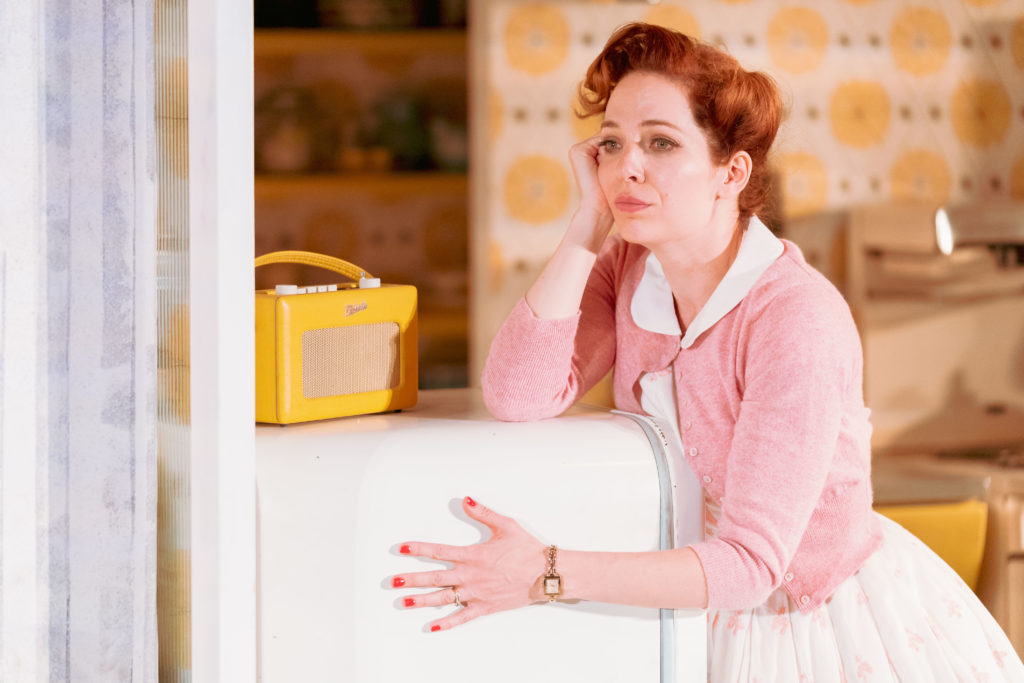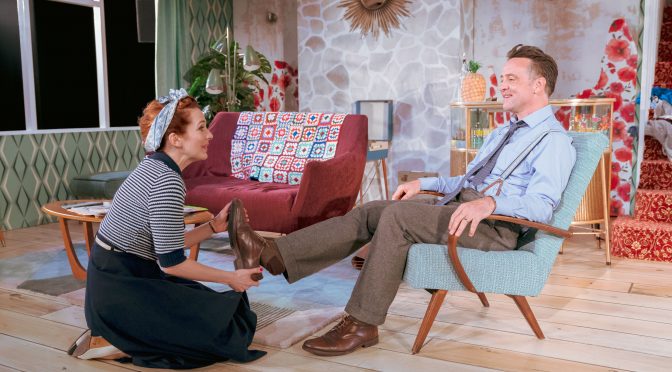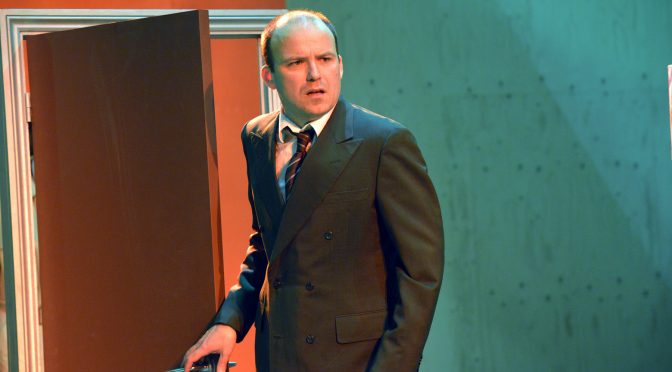While the culture of the 1950s has appeal for many, including a misguided political nostalgia, setting out to actually live as if in the period is the extreme scenario for Laura Wade’s new play. Trying to step back in time means buying not just retro wallpaper but also decrepit kitchen appliances for the stay-at-home wife to use. The idea is a novel, if flawed, way to question as well as mock those who idealise the past. Unfortunately, the play is really worth remembering only because of its brilliant performances.
Home, I’m Darling is essentially a romantic comedy about Judy and Johnny. Their decision to ignore the present day, and how their lifestyle came about, has some twists. And Judy becoming a housewife serves as a speedy springboard to consider women’s lives then and now. There’s also the theme of individuality – how many problems come from others’ perceptions of their eccentricity? It’s just a shame that all these themes feel tacked on.

If the questions and issued seem contrived and obvious, it’s still all wonderfully performed. Wade’s characterisation holds attention. Katherine Parkinson and Richard Harrington take the leads and manage to convince us that their marriage is special. Other parts are blatant foils but, again, the cast manage to make them work. The scepticism of Judy’s mother and Johnny’s boss leads to great dialogue and is superbly performed by, respectively, Sian Thomas and Sara Gregory. Meanwhile two friends, 1950s followers rather than fanatics, are satisfyingly filled out by Kathryn Drysdale and Barnaby Kay.

This is unquestionably Parkinson’s show. All too obviously, donning rose-tinted period spectacles is a distraction for bigger problems, and Parkinson suggests this depth better than Wade writes it. She makes you feel for Judy at every attempt to be an “angel in the house”. A constrained fragility is conveyed to perfection and incredible tension ensues over the smallest domestic tasks.
As the sexism of the past comes into collision with modern values, it makes us ask how much progress has been made. There’s a sexism-at-work subplot that is effective. But if not quite as laboured as housewifery, these points are long-winded and Tamara Harvey’s direction, with scenes slow to arrive, doesn’t help to inject urgency. Wade struggles with some virtue signalling about the scenario as a “luxurious” choice and the drama of hard economic facts impinging on a one-salary household. Ultimately, while the play has lots of good jokes (and looks great thanks to Anna Fleischle’s set and costumes), the idea doesn’t have enough scope to develop past a sketch or short story.
Until 5 September 2018
Photos by Manuel Harlan


